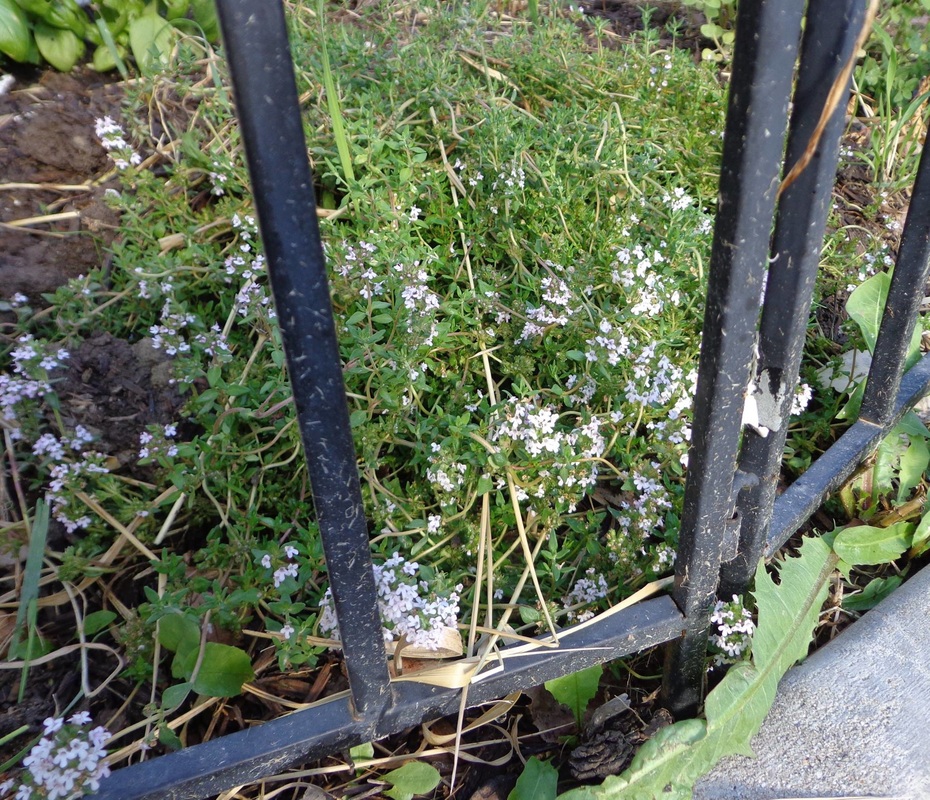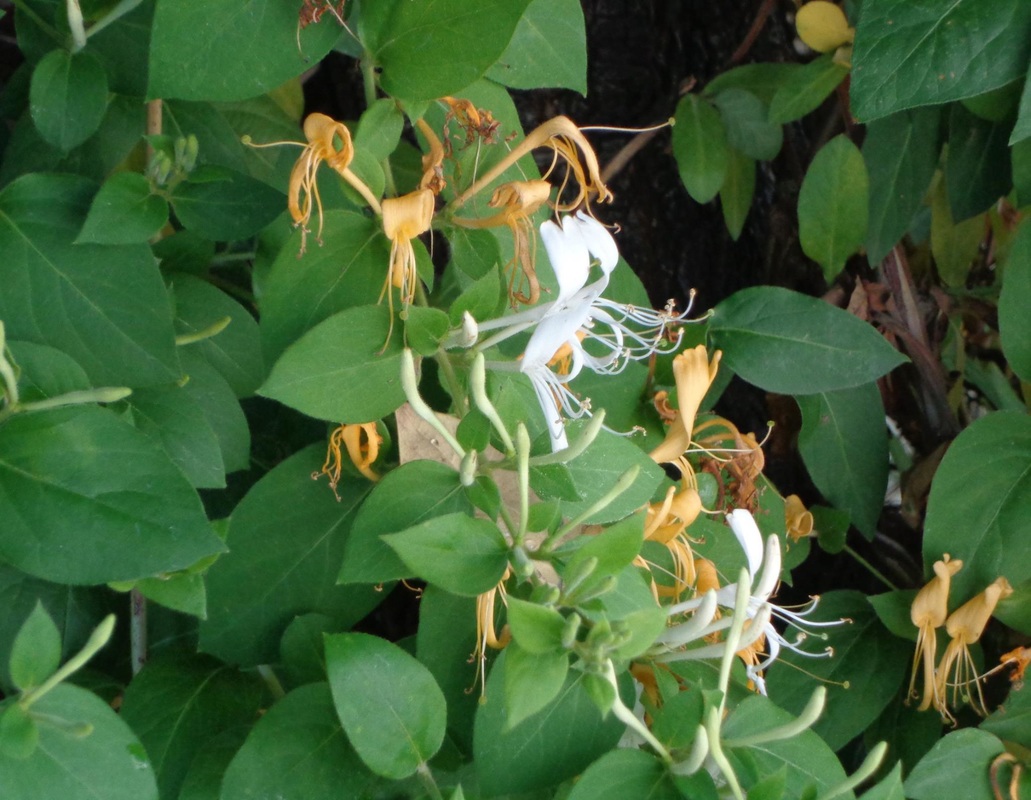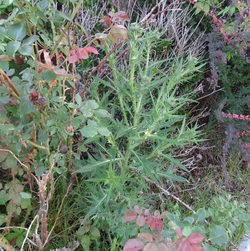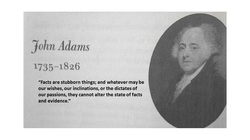| Happy Flag Day, and happy 240th birthday to the US Army. I had a great, quiet morning sitting near my garden, and wanted to share a few thoughts with you on gardening and what Flag Day means to me. I am not a great gardener, but I am improving, with some help from my girlfriend. I started this morning watering some herbs she planted last year. My favorite is the thyme, shown in the first picture. Even though I had just weeded this part of the garden a week or so ago, I noticed a number of weeds have already reappeared, and I will need to spend some time cleaning up my thyme this week! Then I took a break with a cup of coffee, and was immediately aware of a beautiful fragrance that was perfuming the entire back yard. I knew right away this came from a flower that appeared in my yard last year without any plan on my part. It's like a vine with pretty yellow flowers, and they smell great (second picture). My girlfriend suggested I help them a little using an old trellis, and sure enough, this year they have exploded, The weeds don't stand a chance in this part of my yard. Finally, coffee in hand, I went out front to look at another plant that appeared without my consent. This one is ugly, with spines that hurt an ungloved hand--it's a weed by any definition (picture three). Yesterday my girlfriend pronounced it the biggest weed she's ever seen, which I think is a bit of an exaggeration, but I digress. That weed is now on my list of things to get rid of this week. All of this went into my brain and immediately crashed into something that's been bothering me since I read it earlier this week--an editorial by Daniel Henninger in Wednesday's WSJ entitled "Bye, Bye, American History." Like my garden, I find some things I like and some things I don't like in Mr. Henninger's editorial. First, I like that he has included the link to the proposed AP History curriculum and encouraged us all to read and review it. I like that so much I am including the link here as well: https://advancesinap.collegeboard.org/english-hi…/us-history. I don't like that Mr. Henninger seems to object to the inclusion of some historical facts because he feels they encourage Orwellian groupthink. The facts he highlights are those about racial injustice in America. The particular flavor of groupthink he cites is called political correctness. What bothers me is that Mr. Heninger implies that changing the AP curriculum is the cure for groupthink, and that is surely false. Facts don't cause groupthink. The way facts are taught can cause groupthink, and teaching any information as propaganda will certainly cause groupthink. Those who seek to change the selection of facts to favor one flavor of groupthink over another are missing the whole point of teaching history. Racial injustice is a noxious weed. It always has been. But provisions for slavery were included--intentionally--in our Constitution because our Constitution was a compromise between men who depended on slavery and men who opposed it. The men who depended on slavery had many different justifications, from necessity to God's will. They were all wrong. Nonetheless, the compromise happened, including specific constitutional language that protected the importation of slaves for a period of years. Without the compromise--America's original sin, as it were--it seems likely to me that the United States would not have survived. Acknowledging the facts of racial injustice in American history is not some weak-minded salve for metaphysical guilt, as Mr. Henninger suggests. It is absurd for any American alive today to feel guilty for the institution of slavery. But it is essential for those living today to accept the facts as they are in order to understand the price that was paid--by others--for the liberty we enjoy today. It is essential, indeed, to understand that America has never been perfect, and is not perfect today. This, in turn, is essential to truly grasp our responsibility for continuing to improve the greatest republic the world has ever known. We all must do our part to keep the garden free of weeds. And therein lies the real beauty of Flag Day for me. Our flag doesn't stand for a garden that is weed-free. That's not what makes the United States worthy of all the sacrifices that have been made on its behalf. Our flag stands for a place where the power to choose between weeds and flowers lies in the hands of the people. The history of slavery in the United States is proof we can be as blind to justice as any people in the history of the world. The history of civil rights is proof we can rise above our blindness. The difference is a function of all of us. Put on your gloves, America. The weeds don't sleep. |
|
0 Comments
Leave a Reply. |
AuthorAuthor of Thy King Dumb Come and Accountability Citizenship, Stephen P. Tryon is a businessman and technologist with extensive experience in e-commerce, a retired Soldier, and former Senate Fellow. Archives
January 2024
Categories |





 RSS Feed
RSS Feed
